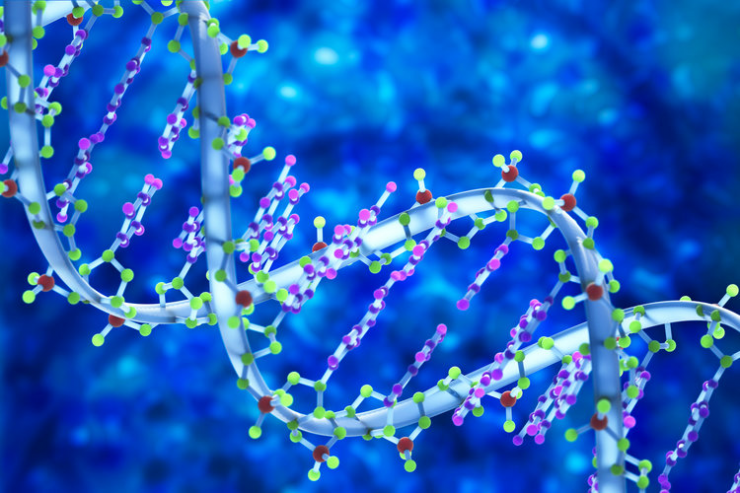Kadimastem (TASE:KDST) hopes its pre-IND meeting with the FDA in November will outline a protocol for a Phase 1/2a clinical trial of its stem cell therapy for the treatment for Amyotrophic Lateral Sclerosis (ALS) to begin at the end of 2016.
“Our plan is to begin the trial in Israel under an IND and then continue it in the U.S.,” Arik Hasson, EVP for R&D, says in an interview with BioTuesdays.com.
Dr. Hasson explains that Kadimastem’s technology platform enables the differentiation of stem cells into a range of functional human cells for regenerative medicine, including neuron-supporting cells of the brain for diseases of the central nervous system, such as ALS, as well as pancreatic cells that produce and secrete insulin for Type 1 diabetic patients.
In addition to regenerative medicine, he says Kadimastem can use these functional cells for screening of small chemical compounds with the goal of discovering drugs for neurodegenerative diseases and diabetes. The platform also facilitates large-scale production that is reproducible and fully industrialized, he adds.
Michal Izrael, head of Kadimastem’s neurodegenerative diseases team, says that the company is using human embryonic stem cells and induced pluripotent stem cells to develop astrocyte precursor cells, a cell type that is believed to play a key role in supporting motor neurons and may be implicated in ALS disease progression.
Research has shown that astrocytes malfunction in ALS patients and even attack neurons. Kadimastem’s astrocytes will be transplanted into a patient’s spinal cord fluid to compensate for malfunctioning ones in ALS patients, she adds.
Dr. Izrael also contends that Kadimastem’s therapy has the potential to be a frozen off-the-shelf product which, when thawed, will be injected directly into patients.
Kadimastem technology enables the differentiation of stem cells into a range of functional human cells for regenerative medicine, including neuron-supporting cells of the brain for diseases of the central nervous system, such as ALS.
In preclinical studies, the company successfully demonstrated the efficacy of injecting its brain supporting astrocytes into the spinal fluid of a rat model of ALS.
Dr. Izrael also points out that injection of cells into the spinal fluid enabled the cells to disperse throughout the central nervous system. In addition, the treated animals showed increased life expectancy, significant improvement in motor function and delay in disease onset.
Dr. Hasson says that the primary endpoint of the company’s Phase 1/2a trial will be safety, with efficacy as a secondary endpoint. The trial is planned to run for around 18 months until completion.
In an industry report on ALS cell therapies earlier this year, Jason Kolbert, Maxim Group’s head of healthcare research, supported Kadimastem’s basic premise of using allogeneic adult or embryonic stem cells that are differentiated into neuron-supporting astrocytes.
Dr. Michal Izrael“Astrocytes are believed to play an important role in preserving neuron health by absorbing excess glutamate and secreting neuron growth factors,” he said. “Kadimastem’s astrocytes rapidly reduce free glutamate, which may be beneficial to ALS patients.”
There are at least 150,000 ALS patients in the developed world, with around 50,000 new cases each year. The annual healthcare costs from ALS in the U.S. alone are an estimated $6-billion.
Kadimastem, which was founded in 2009, relies on patent protected technologies initially invented at the Weizmann Institute of Science in Israel by Prof. Michel Revel, a developer of Merck Serono’s blockbuster multiple sclerosis drug, Rebif. Prof. Revel is Kadimastem’s chief scientific officer.
To treat diabetes, Dr. Hasson says the company’s solution is based on differentiation of stem cells into pancreatic islet-like clusters that exhibit glucose-sensitive insulin secretion, with the potential to restore a patient’s ability to produce and release insulin to prevent hyperglycemia, as well as glucagon by alpha cells to prevent hypoglycemia.
The technology is designed so that these functional hormone producing cell aggregates will be encapsulated to prevent immune rejection and enhance mobility in the body. Kadimastem’s therapy will be an off-the-shelf product, containing cells that, once thawed, will be administered under the skin by a standard injection under local anesthesia.
“This would have the potential to obviate the need for monitoring blood sugar levels and insulin injections in Type 1 diabetic patients and insulin dependent Type 2 patients,” he adds. “We hope to begin clinical studies with our transplantation therapy in around three years.”
According to the WHO, there are some 32 million insulin-dependent diabetics in the developed world, including all Type 1 patients and the insulin-dependent Type 2 patients.
The American Diabetes Association estimates the total costs of diagnosed diabetes to be $245-billion annually in the U.S., including $176-billion in direct medical costs and $69-billion in reduced productivity.
Using its ability to produce functional cells from stem cells, the company has established high throughput screening systems for identifying lead drug candidates. “Our system is capable of screening compounds automatically and quantifies the readouts using a cell-based High Content Screening system,” Dr. Hasson adds.
Last month, Kadimastem received approval of a grant from Fast Forward, the commercial research program of the National Multiple Sclerosis Society to test the efficacy of a potential drug discovered through its drug-screening platform in an animal model for MS.x.







